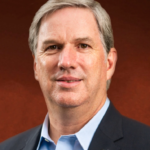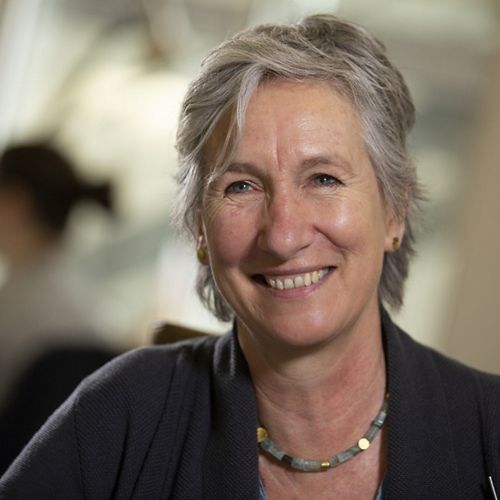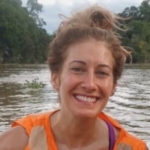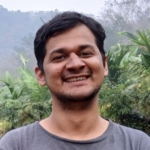ABOUT US
Photo credit: © Nick Hall
The Science for Nature and People Partnership (SNAPP) was founded in 2013 to unite leading organizations and experts around a shared vision: a world where protecting nature goes hand in hand with sustainable development and human well-being. Today, we continue that mission by delivering evidence-based, scalable solutions to global challenges at the intersection of conservation, development, and human thriving.
THE SNAPP TEAM APPROACH
The world’s biggest conservation and sustainable development challenges demand innovative solutions. But individual experts in these fields are busy and often very specialized; they rarely have the ability or the incentive to tackle a multi-dimensional challenge related to both conservation and sustainable development. The Science for Nature and People Partnership (SNAPP) solves this problem.
SNAPP selects its multidisciplinary teams through a rigorous proposal process, and then provides them with funding to cover neutral meeting spaces, travel, analytical, communications and facilitation support. Dedicated Research Fellows, such as postdocs, graduate students, and, in some cases, research assistants may be hired (please see our 0% indirect cost rate guidelines here). These tangible incentives are the “enabling conditions” that allow a team of experts from a diversity of disciplines to convene around a specific global challenge at the intersection of conservation and human well-being.
SNAPP teams thus gain the time and space to 1) rapidly synthesize existing knowledge about a problem, and 2) deliver evidence-based, scalable solutions. These solutions (like policy recommendations and decision tools) can then be quickly adopted by governments, international business, and global NGOs, because high-level decision makers are embedded within SNAPP teams from the start.
Through this approach, SNAPP works to establish a world in which protecting and promoting nature works in concert with sustainable development and improving human well-being. Some examples of SNAPP successes can be explored via this “Story Map.”
Photo credit: © Jennifer Adler
ETHICS &
INCLUSION
SNAPP values diversity of identities, knowledge systems, and worldviews. We appreciate and respect the voluntary contributions of every individual in our community.
We warmly welcome all applications and inquiries.
Who We Are
Our board approves funding our teams and provides financial and strategic support to the partnership.

Ruth is Denning Family Professor of Sustainable Development at Columbia University in New York City. A member of the US National Academy of Sciences, Ruth has received the MacArthur Foundation “genius” award. She is also a fellow of the American Association for the Advancement of Science, American Geophysical Union, Ecological Society of America, and American Academy for Arts and Sciences. She co-directs the undergraduate program in Sustainable Development at Columbia University.
Author on more than 100 peer-reviewed papers, her research, focused in the Amazon and India, balances human societies’ landscape transformation for requirements such as food production and settlements, and maintaining a habitable planet. Her book, The Big Ratchet: How Humanity Thrives in the Face of Nature Crisis is aimed at a popular audience.
Columbia University

Harry is the retired CEO and board chair of the investment firm Dodge & Cox. He served the firm over 39 years and earned his MBA from Northwestern University. He was a Governor of the Investment Counsel Association of America (ICAA) Board. Harry also served on boards of St. Luke’s Hospital, the Lucille Packard Children’s Hospital in Palo Alto, and the highly respected scientific and education institution California Academy of Sciences in San Francisco.
Harry and his wife Shirley (a trustee of TNC’s Idaho Chapter) are restoring several miles of spring creeks and providing much needed habitat for native fish, birds and mammals near Bellevue, Idaho. They worked tirelessly with the founding partners to launch SNAPP in 2010 and continue to foster its mission.
Dodge & Cox

Dr. Stacy Jupiter is the Executive Director of Marine Conservation for the Wildlife Conservation Society (WCS), based in Fiji. She has over two decades of experience in the research and management of tropical coastal ecosystems, with a strong geographic focus on Oceania. She held prior roles with WCS as Melanesia Regional Director (2014 – 2024), Fiji Country Director (2009 – 2014) and Associate Conservation Scientist (2008 – 2009). She is a systems thinker who has published extensively across a broad range of topics covering integrated land-sea planning, community-based management, small-scale fisheries management and governance and planetary health, including in journals such as Nature, Science, and The Lancet. She holds a PhD from the University of California-Santa Cruz and an AB from Harvard University. She was a 2002 Fulbright Scholar to the University of Queensland and was named a 2019 MacArthur Fellow.
Wildlife Conservation Socieity

Dr. Rachel Neugarten is Executive Director of Conservation Planning for the Wildlife Conservation Society. She has more than two decades of experience in conducting scientific research to inform conservation practice and policy. In the past, she has served as Director for Conservation Priority Setting for Conservation International (2011-2019) and Conservation Planning and Information Specialist for The Nature Conservancy (2004-2008). She has led large-scale spatial planning research to inform conservation investment and decision-making in Madagascar, Cambodia, Liberia, the Amazon, the Asia Pacific region, and globally. She has published and co-authored peer-reviewed scientific articles in journals including Nature Communications, Nature Ecology and Evolution, Nature Sustainability, Science Advances, and BioScience. She has expertise in spatial planning, modeling nature’s contributions to people (ecosystem services) and impact evaluation. Rachel has a PhD and MS from Cornell University, and a BA from Columbia University.
Wildlife Conservation Socieity

Midori Paxton is the Director of the UNDP Nature Hub within the Bureau for Policy and Programme Support. Under the UNDP Nature Pledge for 2030, Midori leads UNDP’s work to support over 140 countries with a range of actions to implement the Global Biodiversity Framework, Land Degradation Neutrality, nature-based solutions for climate and SDGs, and other multilateral agreements. The thematic areas range from ecosystem management, biodiversity conservation, ocean and water governance, environmental governance, food system, biodiversity finance and work around value shift for behavioral change for nature and people.
Midori brings 30 years of experience and expertise at the interface of nature conservation and sustainable development at country, regional, and global levels. She was the UNDP Head of Ecosystem and Biodiversity between 2016 and 2023, and a regional technical advisor based in Bangkok from 2010 to 2016, supporting countries in Asia with identification and implementation of ecosystems and biodiversity projects. Between 2000 and 2010, she worked in Namibia at the UNDP Country Office in Windhoek and also under the Directorate of Parks and Wildlife Management, Ministry of Environment and Tourism, coordinating a successful and innovative project to strengthen the national protected area system. She also took two UNV humanitarian assistance assignments as an information officer as part of the UN peace keeping operation in Somalia in 2004 and a field officer administrating refugee camps with UNHCR in Tanzania in 2006. Prior to that she worked as a journalist and staff writer for the Japan Times newspaper, covering environmental and human rights issues.
Midori holds a master’s degree in Environment and Development from University of Cambridge. She is a prolific writer and is the author of six books and hundreds of published photos and articles.
United Nations Development Programme

John Poulsen is the Global Director of Science Capacity and Deputy Director of One Conservancy Science at The Nature Conservancy (TNC). He is also an Adjunct Associate Professor at Duke University and the University of Colorado. John is an ecologist and author of more than 120 peer-reviewed publications on topics including statistical methods, ecological interactions, climate change, community-based management, and forest ecosystems. With over two decades of experience in tropical forest research and conservation—primarily in Central Africa—John has dedicated his career to advancing science-based solutions for biodiversity conservation and sustainable development.
John’s work bridges science, policy, and capacity-building to advance conservation globally. Previously, John directed conservation programs in Congo for the Wildlife Conservation Society, collaborated with USAID and the U.S. Forest Service to advise the Gabonese government on climate change policy, and served as a professor of ecology at Duke University’s Nicholas School of the Environment for 11 years. John is also passionate about fostering scientific leadership in low- and middle-income countries and co-founded the Forest Research Ecology and Stewardship Training (FOREST) master’s program to empower the next generation of Central African conservation scientists. John holds a master’s degree from San Francisco State University and a PhD from the University of Florida.
The Nature Conservancy

As Chief Conservation Officer for WCS, John is keenly interested in the sustainable use of natural resources and the relationship between conservation research and practice. After postdoctoral studies with the Smithsonian Institution, John was professor at the University of Florida, establishing a graduate program to train students from tropical countries.
John has over 180 publications including four books. Former president of the Society for Conservation Biology, board chair of the Christensen Fund and Foundations of Success, and on the executive committee of the Tropical Forest Foundation, he presently serves as IUCN councilor and vice president for North America and the Caribbean. King Bernhard of the Netherlands inducted John into the Royal Order of the Golden Ark, recognizing a lifetime of achievement and service to conservation.
SNAPP Board Chair

Cristián Samper is Principal Advisor for Nature at the Bezos Earth Fund and has served as President & Chief Executive Officer of the Wildlife Conservation Society (WCS) since 2012. WCS is one the largest environmental non-profit organizations in the world, established in 1895 to save wildlife and wild places. WCS manages the largest network of urban wildlife parks, hosting four million visitors each year, and carries long-term field research and conservation programs in more than 60 countries.
Prior to joining WCS, Dr. Samper served as Director of the Smithsonian’s National Museum of Natural History and was the founding director of Colombia’s Alexander von Humboldt Institute. He served as Chair of the science advisory body of the UN Convention on Biological Diversity and was one of the leaders of the Millennium Ecosystem Assessment. He is a member of the Council on Foreign Relations and a Fellow of the American Academy of Arts and Sciences.
Raised in Colombia, Dr. Samper studied biology at the Universidad de Los Andes and earned his MA and PhD from Harvard University.
Bezos Earth Fund

Walter Sedgwick is a long-time forest landowner and conservationist who has worked with many organizations dedicated to land and animals, serving on the Boards of the National Audubon Society, The Nature Conservancy-Florida, Land Trust Alliance, and the Turtle Survival Alliance. He was Chair of Tall Timbers, Bat Conservation International, Island Conservation, and the Pacific Forest Trust. He is currently on the board of the Wildlife Conservation Society..
Walter is co-founder of Island Press and the Red Hills Land Conservancy which is now part of Tall Timbers. He also helped to found the Turtle Conservation Fund in 2002. With his Walter C. Sedgwick Foundation, he has donated a major collection of Japanese Buddhist sculpture and early Chinese ceramics to the Harvard University Museums.
Wildlife Conservation Society

Clare has more than 30 years of global experience on climate change, energy and natural resource management. Her experience includes seven years at the International Institute of Environment and Development (IIED) leading the climate group and 15 years with the UK’s Department for International Development (DFID) leading first Asia and then Africa Division’s climate change response. Clare has deep experience working with Least Developed Countries and has focused much of her career advancing priorities in Africa, Asia and Latin America. Clare received her BSc in environmental science and development studies from University of East Anglia and her MSc in forestry and its relation to land use from Oxford. As global managing director of climate at TNC, Clare leads the Climate team as it executes on TNC’s vision for achieving TNC’s 2030 climate goals. Clare is from the UK and speaks Nepali, Swahili and Spanish.
The Nature Conservancy

Jensen has served as the director of SNAPP since 2017. She joined The Nature Conservancy in 2008 as a senior conservation scientist and fulfilled roles including Science Advisor to SNAPP and the Luc Hoffmann Institute, an Adjunct Senior Research Fellow at the University of Queensland, and a Beverly Cobble Rodriguez Lecturer at the University of Virginia.
Prior to joining SNAPP, Jensen managed diverse programs including the U.S. Agency for International Development’s Migratory Bird Program at the National Fish and Wildlife Foundation and Conservation International’s Rapid Assessment Program. She served as a Peace Corps volunteer in Nicaragua.
A National Science Foundation Graduate Research Fellow, Jensen received her doctorate in interdisciplinary ecology from the University of Florida where she studied the effects of human activity on endemic land birds in the Kingdom of Tonga and Turks and Caicos Islands.
Director
SNAPP

Kate is a Senior Program Manager for the Wildlife Conservation Society’s Learning and Leadership for Conservation team, which supports the development of inspired and committed young conservationists around the world through a series of graduate scholarships, small grants, and training opportunities. She manages the WCS Graduate Scholarship Program, which promotes the next generation of conservation leaders by providing international graduate education opportunities to exceptional candidates from around the globe. Kate has been with WCS since 2005, working across several departments within the Global Conservation Program. She has over fifteen years of experience in nonprofit organization management, relationship building, and international relations. Kate holds a bachelor’s degree in public and community services studies and humanities with a minor in Spanish, and a master of science in global affairs.
Program Representative
Wildlife Conservation Society

Garrett joined The Nature Conservancy in 2022 as the Program Manager for SNAPP. He brings over a decade of experience working in operations, administrative, and project management roles for conservation, environmental advocacy, and international development organizations, including the American Council for an Energy Efficient Economy, the Northwest Power and Conservation Council, and Peace Corps headquarters in Washington, DC.
A Returned Peace Corps Volunteer (Environment, Paraguay) and former Paul D. Coverdell Fellow, Garrett holds a Master’s of Public Administration from American University where he worked as a Graduate Research Assistant with the Center for Environmental Policy. He also holds a bachelor’s degree from Virginia Polytechnic Institute and State University.
Outside of work Garrett is an avid hiker, and completed a south bound thru-hike of the Appalachian Trail in 2022. In his free time he enjoys running and biking, playing guitar, and spending time with friends and family. He is based in Washington, DC.
Program Manager
SNAPP
SNAPP Research Fellows are supported through SNAPP funding and provide vital support to our working groups both in performing research and analysis, and by providing logistical support and project management. Our Fellows are stationed at universities and research institutions across the globe, and through their involvement with SNAPP gain valuable experience in interdisciplinary research, as well as access to important networking and mentorship opportunities provided by the program for early-career scientists.

Ruth is Denning Family Professor of Sustainable Development at Columbia University in New York City. A member of the US National Academy of Sciences, Ruth has received the MacArthur Foundation “genius” award. She is also a fellow of the American Association for the Advancement of Science, American Geophysical Union, Ecological Society of America, and American Academy for Arts and Sciences. She co-directs the undergraduate program in Sustainable Development at Columbia University.
Author on more than 100 peer-reviewed papers, her research, focused in the Amazon and India, balances human societies’ landscape transformation for requirements such as food production and settlements, and maintaining a habitable planet. Her book, The Big Ratchet: How Humanity Thrives in the Face of Nature Crisis is aimed at a popular audience.
The Nature Conservancy/University of Washington

Helen Cheng is our SNAPP Innovation Hub Qualitative Research Fellow! Helen will be synthesizing and communicating the quantitative and qualitative data on the benefits of nature to the U.S. society. She will focus on fostering collaboration with a cross section of end-users to develop pathways of knowledge to action while utilizing equitable and place-based approaches to conservation and stewardship of nature. Helen will be working closely with SNAPP Innovation Hub PIs Phil Loring and Danielle Ignace. Helen is based in Boston, Massachusetts.
SNAPP Innovation Hub Qualitative Research Fellow

Maria Jimena has a degree in Biology, specializing in Terrestrial Ecology (BSc.), Agroforestry and Silvopastoral Systems (MSc.), and Functional AgroEcology (PhD.). Her research focuses on analyzing the effects of agricultural practices management over biodiversity conservation in anthropogenic and pristine habitats for providing ecosystem services (ES) on agricultural landscapes and developing sustainable Food Systems. Maria Jimena’s research projects built on inter-disciplinary cooperation (e.g., water, soil and forest management, nature conservation, biostatistics, and environmental economy) to support developing and implementing nature-based solutions in diverse global regions (Europe, Asia, and America). She co-leads and supports scientific publications to increase our knowledge of plant and animal biodiversity patterns, ecosystem functioning, and service delivery from diverse agroecosystems, including forest, crops, and grassland-dominated landscapes. Her research search is to facilitate the development of agroforestry and silvopastoral systems that favor biodiversity, climate change mitigation, and adaptation in the Global South.
Instituto Alexander von Humboldt

I am a master’s student at the University of Greifswald in Germany, enrolled in the Landscape Ecology and Nature Conservation program. Currently, I am finalizing my master’s thesis on the potential use of spatial modeling for studying Marmota bobak (a large burrowing rodent) in Kazakhstan.
Since 2015, I have been actively collaborating with the Association for the Conservation of Biodiversity of Kazakhstan (ACBK) and have participated in several field studies on saiga, steppe rodents, and white-headed ducks. I am now a staff member of the organization.
My main research interests lie in the study of steppe ecosystems and the distribution of steppe mammals, as well as understanding and resolving human-wildlife conflicts. I am also particularly fascinated by studying wild animal behavior.
In my free time, I train my dogs in commands and tricks, spend a lot of time outdoors, and organize science outreach lectures for anyone interested.
Association for the Conservation of Biodiversity of Kazakhstan

Jahnelle Howe is our SNAPP Innovation Hub Quantitative Research Fellow! Jahnelle will be conducting research to develop socioeconomic valuations of conserved areas across the United States, working closely with SNAPP Innovation Hub PIs Phil Loring, Beck Chaplin-Kramer (WWF), and Danielle Ignace (UMN). Jahnelle is based in New York City.
SNAPP Innovation Hub Quantitative Research Fellow

I am an ecologist who has extensively studied the impacts of invasive species on community and ecosystem properties of forest-grassland mosaics in India. I have used a variety of statistical tools and techniques to explore these questions. I am interested in socio-ecological research, and how it can be used to evaluate social, environmental, and policy programs to design better interventions. This interest is bolstered by my previous experiences, right from my undergraduate days, of working in NGOs in rural India on the issues of education, employment, health, and community behavior.
University of Minnesota

Omar is a conservation social scientist, whose research concerns how to make conservation practice more socially just. He explores how this can be done by simultaneously working with Indigenous Peoples and Local Communities and conservation workers. In his PhD, he studied the biodiversity conservation political landscape in Nepal, focusing on the barriers and challenges in including diverse voices and practices within organizational structures. Previously he has worked on topics such as human wildlife coexistence and the impacts of voluntary certified standards on environmental and social indicators in palm oil landscapes. Taking a feminist political ecology approach, he centers issues trust, power and justice with a desire to forwarding post-capitalist and decolonial forms of conservation.
Wildlife Conservation Society

Sydney is a masters student in the University of Washington’s School of Environmental and Forest Sciences. She is interested in adaptive and collaborative management of natural resources in response to climate change and natural hazards. Her current research explores the co-management of forest and freshwater habitats for fire resilience with a focus on the wellbeing of salmonid populations. Her background includes conservation and restoration efforts along sections of the Colorado River and economic impact and marketing effectiveness research. In her free time she enjoys backcountry skiing, mountain biking, and backpacking.
University of Washington

Katie Sperry is our SNAPP Innovation Hub Future Tidal Wetlands Research Fellow. In this role, Katie will be analyzing future wetland migration scenarios along the US Gulf Coast, developing maps to inform community stakeholders and policymakers as they make decisions around development and conservation. Katie will be working closely with SNAPP Innovation Hub PIs Chris Shepard, Steven Scyphers, and Vance Crain. Katie is based outside of Washington, DC.

